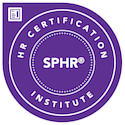There was a time when leadership coaching was reserved for those leaders who needed to “shape up” in a particular area before being shown the door. That’s not the case today. In fact, most senior  leaders attribute at least part of their success to having worked with an effective executive coach.
leaders attribute at least part of their success to having worked with an effective executive coach.
According to a survey conducted by Harvard Business Review and Carol Kauffman of Harvard Medical School, the top three reasons that executive coaches are engaged are:
- Develop high potentials or facilitate transition (48% of respondents)
- Act as a sounding board (26% of respondents)
- Address derailing behaviors (12% of respondents)
For those in the C-suite of an organization, whether large or small, navigating the often-challenging waters of economic trends, tough decisions, internal politics, etc., can be a lonely ride. And it can be hard to get honest feedback (or necessary pushback) when you’re the “big boss.” You need an objective third party who will ask the tough questions, give you honest feedback, and help you think through the best way forward. And that’s where an executive coach comes in.
The HBR survey also showed that for a coaching relationship to be successful, the executive must be highly motivated to learn and grow. Coaching is most likely not going to benefit someone who has a know-it-all mentality or who isn’t open to constructive feedback. It’s also important that the coach and the executive have a good rapport. In fact, the survey showed that regardless of how experienced or credentialed the coach is, if they’re not a good fit for the executive the trust required for the relationship to succeed will probably not develop.
I know from the feedback I’ve received from the leaders I’ve coached and from my own experience working with a coach that when it’s the right fit there are numerous benefits to be derived in each of the top three reasons mentioned above.
Development/transition. A good coach will help you become more self-aware, so you can understand and build on your strengths, and identify those areas where you need to develop. They will help you think through and plan for a transition to a new role or different organization and (most importantly) keep it confidential. That’s why trust is so important.
Sounding board. A good coach will help you get “unstuck.” They’ll listen, ask questions, and then help you find the clarity, focus and confidence you need to take action.
Address behaviors. The more senior you are in leadership, the less likely it is that someone will call you on a behavior that might be derailing your effectiveness as a leader. A good coach will have tools – a 360-feedback instrument, for example – that will help you recognize those behaviors and develop a plan to reduce or eliminate them.
Most importantly, a good coach combined with your willingness to be coached and your desire to learn and grow, will help you become a better leader, no matter where you are in the organization.
Contact me at michelle@connecttohr.com for a free consultation to see whether leadership coaching is right for you.

 Management expert Ken Blanchard once said, “Feedback is the breakfast of champions.” Yet for many of us feedback is a hard meal to swallow. The minute someone suggests giving us feedback, our defenses go up and our hearing fails. Both reactions are limiting to our growth and development. Especially as a leader.
Management expert Ken Blanchard once said, “Feedback is the breakfast of champions.” Yet for many of us feedback is a hard meal to swallow. The minute someone suggests giving us feedback, our defenses go up and our hearing fails. Both reactions are limiting to our growth and development. Especially as a leader. Thank you to Mary Hiland, Ph.D., for this guest blog article on a topic of great importance to nonprofit executive directors – orienting new board members. Mary is a nonprofit board and leadership development consultant dedicated to assisting nonprofit executives and board members unleash their potential for organizational and community impact. She spent 26 years as an executive in the nonprofit sector, where she grew a small nonprofit into one of the largest nonprofits in the Bay Area. She has been a consultant for the past 16 years working with hundreds of nonprofit organizations and their leaders. Learn more about Mary at her
Thank you to Mary Hiland, Ph.D., for this guest blog article on a topic of great importance to nonprofit executive directors – orienting new board members. Mary is a nonprofit board and leadership development consultant dedicated to assisting nonprofit executives and board members unleash their potential for organizational and community impact. She spent 26 years as an executive in the nonprofit sector, where she grew a small nonprofit into one of the largest nonprofits in the Bay Area. She has been a consultant for the past 16 years working with hundreds of nonprofit organizations and their leaders. Learn more about Mary at her 
 Very few people jump at the chance to have what they know will be a difficult conversation. Whether it’s delivering bad news (“we have to lay you off”), providing negative feedback (“your report had multiple errors and needs to be redone”) or breaking off a relationship (“it’s not you, it’s me”) most of us will go out of our way to avoid initiating that conversation. In fact, according to a survey by
Very few people jump at the chance to have what they know will be a difficult conversation. Whether it’s delivering bad news (“we have to lay you off”), providing negative feedback (“your report had multiple errors and needs to be redone”) or breaking off a relationship (“it’s not you, it’s me”) most of us will go out of our way to avoid initiating that conversation. In fact, according to a survey by  As I wrote in my last blog, mentoring programs provide myriad benefits to mentees, mentors and organizations. There’s a specific type of mentoring program I’d like to discuss this time – Affinity Groups.
As I wrote in my last blog, mentoring programs provide myriad benefits to mentees, mentors and organizations. There’s a specific type of mentoring program I’d like to discuss this time – Affinity Groups. As a long-time HR Professional, I know that those who work in human resources must continually add to their knowledge about HR best practices, employment law, benefits and various other topics that impact companies and their employees. That’s why for the past two years I’ve been partnering with
As a long-time HR Professional, I know that those who work in human resources must continually add to their knowledge about HR best practices, employment law, benefits and various other topics that impact companies and their employees. That’s why for the past two years I’ve been partnering with 


